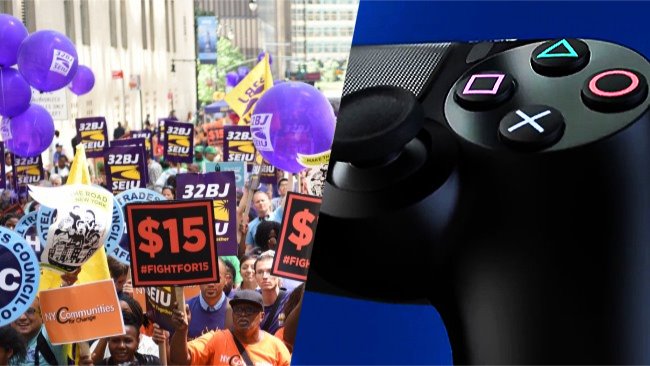
Video games rely on voiceover artists to bring characters to life, drive the plot, and provide color to the worlds around them in the form of squad chatter, overheard conversations, and more. Unfortunately, a long-simmering dispute between several major publishers and SAG-AFTRA, the actors’ union, has boiled over into an all-out strike effective today. So why did this happen, and how will it end?
On SAG-AFTRA’s end, there’s a few answers to this question. The biggest problem, by far, is working conditions. Wil Wheaton, back in 2015, voted to strike and discussed working conditions as a crucial reason why. Voice actors are asked to go seven or eight hours in a session, and, well, imagine talking, yelling, screaming, whispering for eight hours straight. According to SAG-AFTRA, publishers have refused to reduce session times, or take more safety precautions during motion capture sessions.
There are other issues as well. Publishers are so secretive, actors can’t figure out what their jobs will actually be, which is, as the union points out, unprecedented in any other industry that employs actors. It’s also a problem in that actors can be shown three pages of dialogue when they’re really committing to sixty. Secondly, video game publishers are refusing a bonus structure where actors are compensated with a bonus for every two million copies up to eight million copies sold. This is fairly standard language in other SAG-AFTRA contracts, although also the source of the most bitterness in discussions of the strike.
The strike is also across the entire union, so television actors and film actors can’t be asked to step in, and the strike is supported by Canadian performer’s union ACTRA. While Equity, the British actor’s union, has yet to issue a statement as of this writing, its extensive Canadian and American connections make it unlikely it’d allow members to break the strike. In short, if a game wasn’t in production on or before February 17, 2015, then it’s being affected by the strike.
In the short term, this isn’t likely to affect games hitting shelves. That production date is fairly broad, and covers a host of releases. The real problem is going to be for games that started after that date. Either scripts will have to be rewritten, non-union talent will have to be found (which is a violation of the current contract), or games will just have to ditch voice-acting altogether. More relevantly, it will likely touch off a cascade of conversations around the video game industry’s labor practices, which have been criticized especially heavily in recent months, for both programmers and those physically making the games. Long hours, a lack of information, and overwork to the point of exhaustion are not problems limited to voice acting in the video game industry.
Hopefully the strike can be settled amicably, although it was unfortunate it came to this point. But even if it’s quickly resolved, the issues it’s raised are unlikely to go away.
